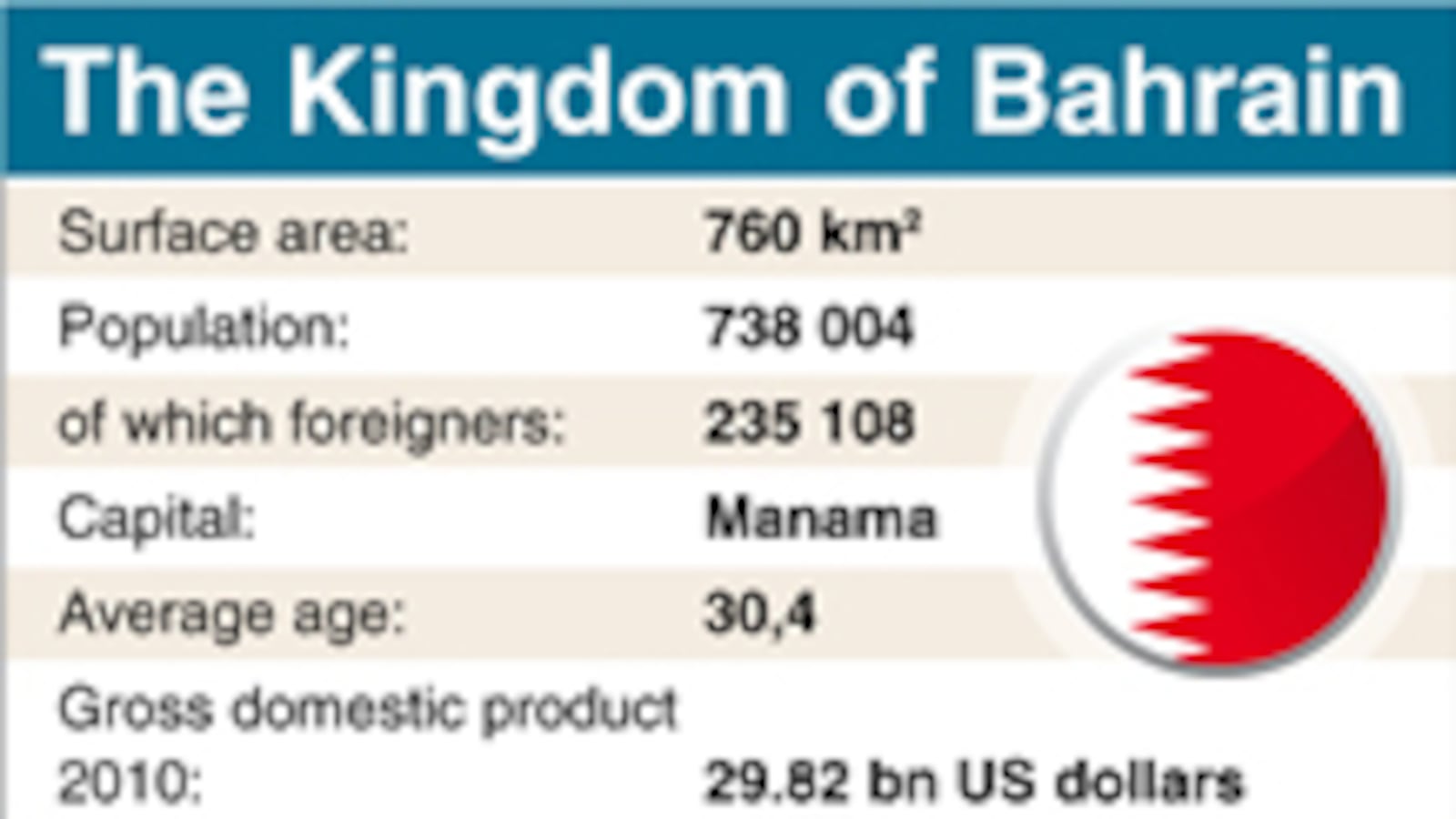Jubilant opposition leaders reclaimed a symbolic landmark today, and Bahrain's crown prince has opened up negotiations with the opposition. The Daily Beast answers six key questions about the uprising. Plus, Karen Leigh reports from inside the uprising.
1. What's the latest development out of Bahrain?
Bahrain's government announced on Saturday that talks with the opposition have begun. "A Bahrain process of dialogue has begun between the crown prince and political groups," said an official on Twitter, but did not give any further details.
Earlier on Saturday, thousands of Bahraini protesters flooded Pearl Square following the withdrawal of the military by Crown Prince Salman. That landmark, which has become the epicenter of the protesters, had been the site of two deadly confrontations between police and demonstrators that resulted in 10 deaths. Police fired tear gas and rubber bullets to disperse the protesters, and even though several were injured from the oncoming fire, they eventually managed to reclaim the area. The crown prince has said he is deeply sorry for the deaths of protesters.
Back in the U.S., senior officials have spoken to the Bahrain's king and pushed him to enact "meaningful" reform while condeming the violence that initally broke out.
2. Why is Bahrain in turmoil now? What do protesters want?
Inspired by the success of demonstrations for a more democratic government in Egypt and Tunisia, Bahrain is the latest country in the Middle East to fall into turmoil, with protesters calling for the kingdom to become a constitutional monarchy. Many of the protesters are Shiite Muslims, who make up 70 percent of the citizens of Bahrain and are unleashing deep-rooted sentiments toward the long ruling Sunni family in regards to their autocratic approach to politics and economics.
The Daily Beast's Karen Leigh reported: "Protests are nothing new to the tiny Persian Gulf island. Longstanding tensions between the oil-soaked regime of Sunni King Hamad ibn Isa Al Khalifa and the country's poorer, marginalized Shiite population have resulted in intermittent riots. The standoff reached a boiling point two years ago, when police fired tear gas at dozens of Shiite demonstrators after three Shiite Muslim activists were charged with attempting a coup. For that reason, the Bahraini government has, perhaps, been better prepared than its peers in Egypt, Tunisia, Iran, and Yemen in practicing crisis avoidance. In an attempt to stave off protests, the King made a gift last week of 1,000 Bahraini Dinars—about $2,600—to each citizen." Read more about what Bahrainis want.
3. Where is Bahrain?
The country is an island located in the Persian Gulf, to the east of Saudi Arabia, and has a population of 738,000. Bahrain has no land-neighbors and is 3.5 times the geographical size of Washington, D.C., according to the CIA World Factbook.

4. Why does Bahrain matter to the U.S. and the Middle East?
Bahrain is an important strategic ally for the U.S. in the Middle East and the island is home to the U.S. Navy's Fifth Fleet. Its proximity to Saudi Arabia, another Sunni kingdom, also complicates things. As The New York Times reports: Bahrain's conflict is less between pro- and anti-democracy forces, as was Egypt's, as it is between the ruling Sunni class and the Shiite majority. (Eastern Saudi Arabia, where much of its oil comes from, has a large Shiite minority.) Iran's Shiite government is closely watching the situation, although Bahrain's Shiite political figures deny that they want an Islamic theocracy similar to Iran's.
5. Who is Bahrain's Crown Prince Salman? How has he responded to protesters?
Bahrain's Crown Prince Salman bin Hamad Al Khalifa has called for calm amidst protests that have recently turned deadly in the country and led the way in opening talks with demonstators. On Saturday, he announced a national day of mourning for the recent deaths of Bahrain's people. As Deputy Supreme Commander of the Armed Forces, the Crown Prince also ordered withdrawal of troops from the streets. Earlier, police attacked anti-government protesters in the capital, Manama, while the demonstrators were trying to reclaim Pearl Square after troops pulled out. Officers fired teargas or smoke bombs into the crowd as their tanks and armored vehicles withdrew from the square.
6. How has President Obama responded?
On Friday, Obama advised Bahrain's king not to use force. In a statement from the White House, the president "reiterated his condemnation of the violence used against peaceful protesters, and strongly urged the government of Bahrain to show restraint, and to hold those responsible for the violence accountable… As a longstanding partner of Bahrain, the president said that the "United States believes that the stability of Bahrain depends upon respect for the universal rights of the people of Bahrain, and a process of meaningful reform that is responsive to the aspirations of all Bahrainis." Secretary of State Hillary Clinton made similar remarks earlier in the week.
Photos: Bahrain Riots

Watch Protesters Gather in Pearl Square (Saturday)
Protesters Gunned Down in Manama Streets (Friday)





